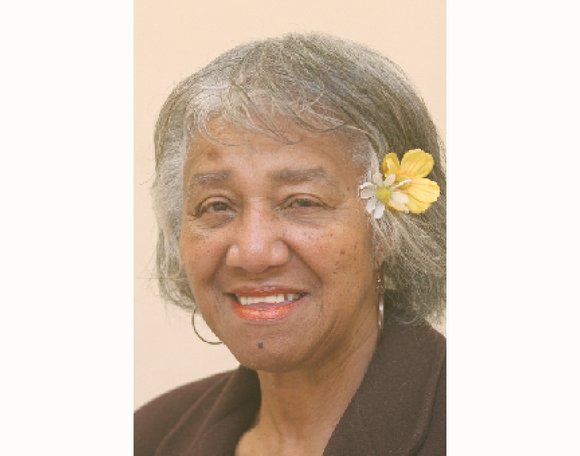Restore justice, peace
5/29/2015, 10:08 a.m.
Mabel Gilbert Wells
The frequent and serious fights which in recent years have broken out among middle and high school students present a cause for alarm and distress. In some cases, absolute cruelty has been displayed. One wonders why so many young people are angry enough to inflict such harm upon another person.
It seems that the adolescents who fight, and those who bully, never learned to consider how another person might feel when physically and emotionally offended.
For a solution to this increasing societal problem, it might be beneficial to designate a small portion of the school week to acquaint students at all grade levels with the philosophy of “restorative justice,” a fast growing reconciliation concept.
Restorative justice encourages people to take responsibility for their behavior toward others, accept accountability and work toward/acquire an attitude of empathy. Empathy means feeling, not for, but with another person.
Restorative justice philosophy calls for empathy, whether one is the offender or the one offended in a crime or otherwise hurtful situation. Both entities would be able to understand the attitude of and expectations of one another and of the total community.
The concept of restorative justice is known to several professions as applicable when working with those who have committed a crime or otherwise offended someone or some group. In this view, justice and peace are seen as an alternative to simply punishing the offender.
Rather, offender and victim are sometimes brought together, and the offender is helped to participate in some action to demonstrate understanding of how his or her offense has been harmful to the victim. In turn, the victim can learn about the offender and come to some willlingness to accept apologies, restitution or whatever resolution can be gained or attained.
This is more desirable than the ancient retributive, punitive system, which is familiar in our society — the old “eye for eye, tooth for tooth” of the biblical Old Testament.
It is my firm belief that restorative justice philosophy and practices would be most useful not only in the justice system, but also in situations where children and young people are at odds with one another, their parents, their teachers and with the general community.
There is a preventive aspect to restorative justice when offered in various practice modes, especially in settings such as elementary schools. At that stage of life, children who have not incorporated the sensitivity of empathy would benefit from a planned and formal focus on reconciliation skills during their school week, with continuation in later grades for sustainment.
Restorative justice is discussed here not as a practice, but as a philosophy to help people come to reconciliation when peace is threatened. The philosophy is taking hold in practice in several states and municipalities in the United States, notably in several counties in Virginia, and specifically in the Richmond area. Agencies and organizations, including Communities in Schools, the Department of Justice Services, Alliance for Unitive Justice, Restorative Youth Services of Virginia, The Richmond Metro Area League of Women Voters and the Richmond Area Chapter of the National Association of Black Social Workers have endorsed and presented forums about restorative justice.
As for practice, there are many modes; some persons are specifically trained in areas directly related to the restorative justice philosophy, but the philosophy is, and can be, embraced by several helping professions, such as my own profession of social work.
This missile is a suggestion — and even a plea — that the philosophy and some practices of restorative justice be incorporated into the school curriculum where young, fertile minds are found.
For the protection of our children and for the safety and future of our society, it is imperative that we find ways to teach our future adult citizens to settle their differences, not with their bodies and angry words, but with shared views, feelings and actions geared to reconciliation and peace. One answer might be presented in the formal application of restorative justice philosophy and practice.
The writer is professor emerita at the Virginia Commonwealth University School of Social Work.
The writer is professor emerita at the Virginia Commonwealth University School of Social Work.







